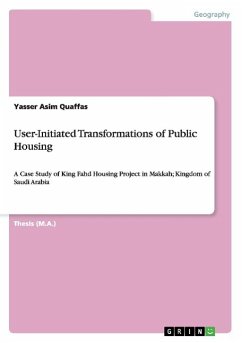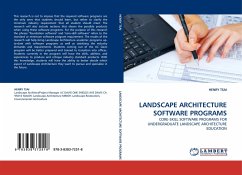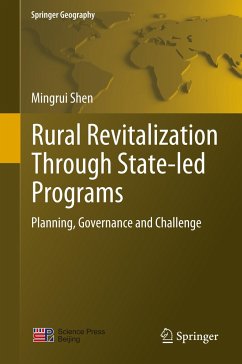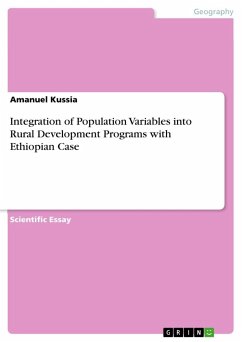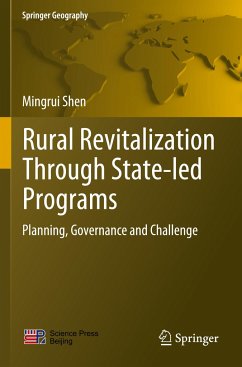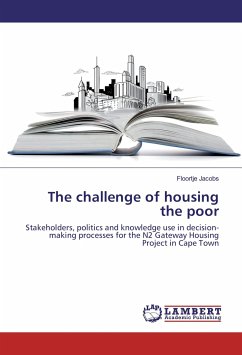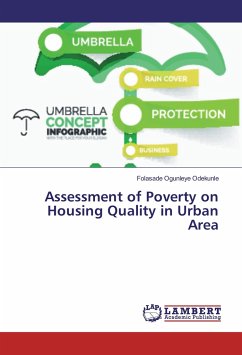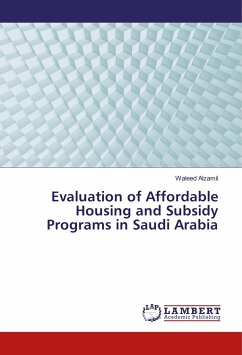
Evaluation of Affordable Housing and Subsidy Programs in Saudi Arabia
Versandkostenfrei!
Versandfertig in 6-10 Tagen
42,99 €
inkl. MwSt.

PAYBACK Punkte
21 °P sammeln!
The issue of affordable housing in Saudi Arabia has become one of the major obstacles faced by the government due to that subsidy programs do not serve vulnerable groups. There are many factors that contributed to the housing crisis such as population growth, rapid urbanization, high land value, construction costs, inflation, and real estate speculation. There has been significant growth in the urbanization since the era of "economic boom" (1969-1974) where the urban population was 30% in 1960. However, urbanization rate has risen to more than 85% in 2012. This study develops mechanisms for su...
The issue of affordable housing in Saudi Arabia has become one of the major obstacles faced by the government due to that subsidy programs do not serve vulnerable groups. There are many factors that contributed to the housing crisis such as population growth, rapid urbanization, high land value, construction costs, inflation, and real estate speculation. There has been significant growth in the urbanization since the era of "economic boom" (1969-1974) where the urban population was 30% in 1960. However, urbanization rate has risen to more than 85% in 2012. This study develops mechanisms for subsidy programs that compatible with the principle of affordable housing. The development of these mechanisms take into account affordable housing standards which include income limits, housing expenditures, family size, health status, and social status.



